How to Stay Social When You Have Geographic Atrophy
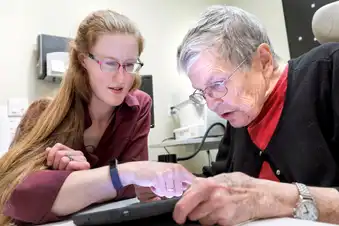
Try Low-Vision Rehab
Vision rehabilitation teaches you how to make the most of the sight you have left. And with the right tools and problem-solving skills, many folks with geographic atrophy (GA) stay active and social. You may work with a daily living instructor or an orientation and mobility specialist. Occupational therapists, assistive technology specialists, or another low-vision specialist can help, too. Ask your eye doctor to connect you with services in your area.
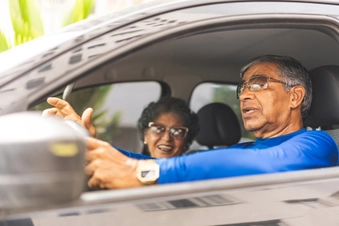
Request a Ride
GA can affect the central vision you need to drive safely, especially in the rain or at night. But there are ways to get around without getting behind the wheel. Ask your friends, family, or neighbors for a lift. If you have a smartphone, request a ride through rideshare apps like Uber or Lyft. Need more transportation choices? Talk to your doctor about local ride services for older people and those with disabilities.
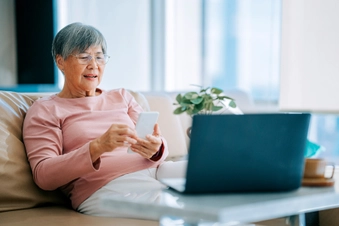
Lean Into Technology
People with GA typically read better on smartphones, laptops, or tablets. That’s because many of these electronics have built-in assistive technology geared toward people with visual impairment. Use your devices to connect through online games, video chat, or a phone call. Try to schedule a time each day or week with friends or family. Ask a loved one or low-vision specialist to teach you how to use the latest tech if you don’t know how.

Build Your Low-Vision Community
Talk to people who know what you’re going through. Not sure how to find folks with GA? Ask your eye doctor or social worker if they can connect you with someone who faces similar challenges. Your medical team may also be able to point you toward in-person or virtual low-vision support. Facebook groups and websites like BrightFocus Foundation, Foundation Fighting Blindness, and MD Support can help you find community, too.
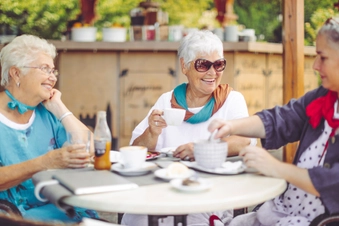
Control Lighting
GA can affect contrast sensitivity, like being able to tell the difference between lip color and the rest of the skin. You may have trouble recognizing faces. As a result, you may feel embarrassed or hesitant to meet old friends or new people. But you may see fine details a little clearer when the light doesn't change so much. Wear a wide-brimmed hat or custom-tinted glasses to reduce glare at your next social outing.
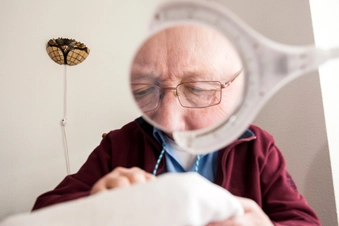
Don’t Give Up on Your Hobbies
Do you have trouble reading or seeing fine details but want to stay in your book club, sewing class, or weekly walking group? Or is looking at paintings in a museum your favorite thing to do? Write down all the activities your vision stops you from doing. Take that list to your eye doctor or low-vision specialist. Chances are, there’s a specific assistive device or a new technique that’ll help you keep doing what you enjoy.
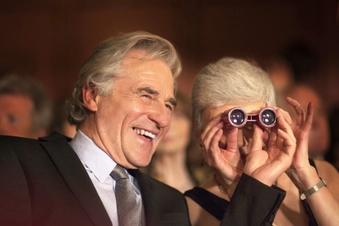
Use Low-Vision Aids to Watch a Movie or Play
More theaters and event spaces now offer services to people with vision loss. For example, you may get a headset to hear a description of what’s happening, what someone is wearing, or details about the scenery. Call ahead to find out if local or national theaters or cultural centers offer this type of audio-described performance or other low-vision aids like telescopes, binoculars, extra lighting, or programs with large print.
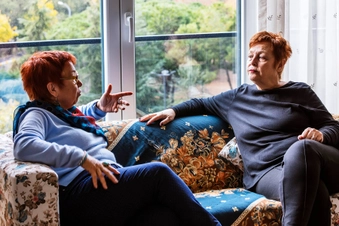
Be Honest About Your Visual Changes
Tell loved ones about your sight challenges. Be specific about how they can help you feel more comfortable in social situations. For example, do you have trouble recognizing faces? If so, the next time you’re at the grocery store or a party, ask your spouse or a close friend to stay close and tell you who is heading your way.
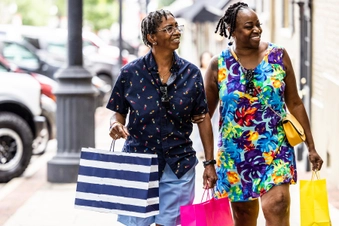
Go Bright and Bold
Ask your friends or family members to wear brightly colored or striped clothing when you go out. Vision loss from GA can make it hard to perceive details from a distance, and you may not be able to recognize faces in a dimly lit room or through a crowd. But you may be able to spot loved ones when they dress in something distinct.
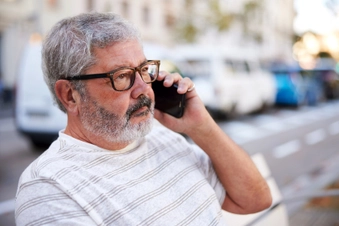
Plan for How to Connect When You Get Separated
The anxiety that you might not be able to navigate out of a space can be scary. But almost everyone has access to a smartphone these days. Keep yours on you when you go out and about. Advise your loved ones to do the same. You may feel more at ease in social situations if you can call your spouse, friend, family member, or colleague when you feel lost.
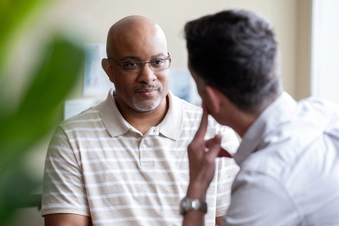
Talk to a Mental Health Professional
You can live a good life despite vision loss. But GA raises your odds of mental health problems, especially depression or anxiety. Tell your doctor if you feel hopeless, frustrated, lonely, or isolated because of your condition. In addition to low-vision rehab, you may need treatment with antidepressants, counseling, or behavioral therapy to manage your emotional and mental health.
Show Sources
IMAGES PROVIDED BY:
1) OHSU/Kristyna Wentz-Graff
2) MesquitaFMS / Getty Images
3) Edwin Tan / Getty Images
4) TravelCouples / Getty Images
5) Eva-Katalin / Getty Images
6) Lucy Lambriex / Getty Images
7) Caiaimage / Sam Edwards / Getty Images
8) petekarici / Getty Images
9) MoMo Productions / Getty Images
10) Tempura / Getty Images
11) Courtney Hale / Getty Images
SOURCES:
Judith Goldstein, OD, director, Lions Vision Research & Rehabilitation Center; associate professor of ophthalmology, Johns Hopkins Wilmer Eye Institute, Johns Hopkins University School of Medicine.
Clinical Ophthalmology: “Anxiety and depression in patients with advanced macular degeneration: current perspectives.”
American Optometric Association: “Low Vision and Vision Rehabilitation.”
National Institute on Aging: “Loneliness and Social Isolation – Tips for Staying Connected."
Foundation Fighting Blindness: “Find Your Local Chapter.”
MD Support: “Information and Support.”
Prevent Blindness: “Eye Diseases & Conditions: Geographic Atrophy (GA).”
Vision Aware: “Enjoying Theater and Film When You Are Blind or Have Low Vision.”
DPM1000222
